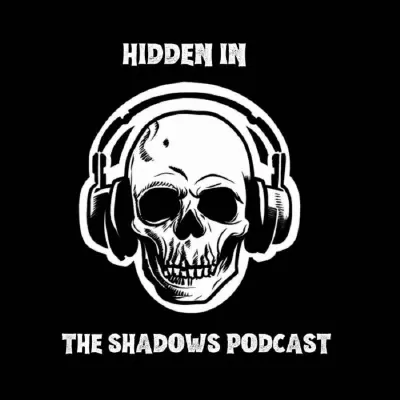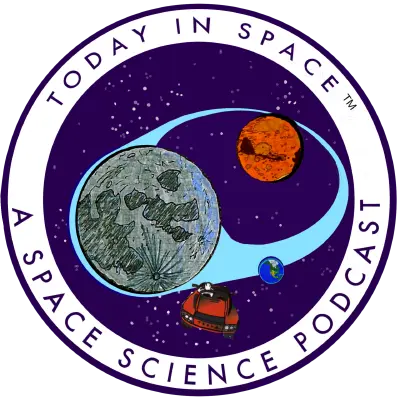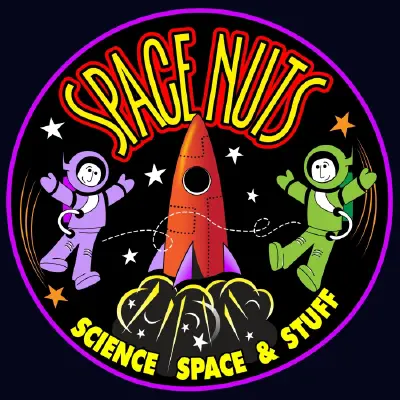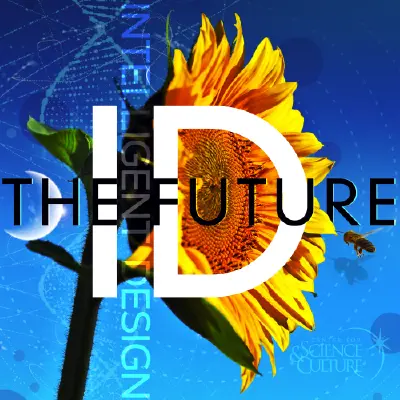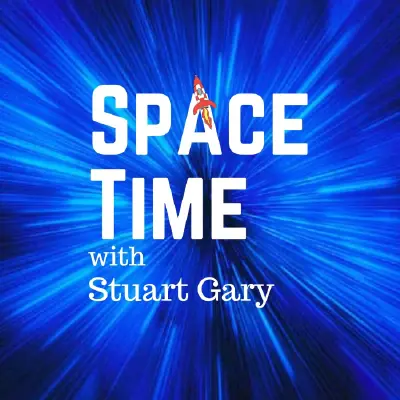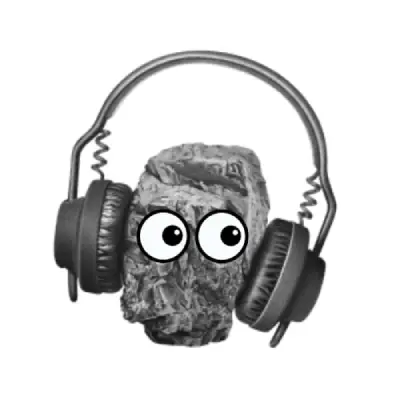Podcasts about Astronomy
Episodes about Astronomy
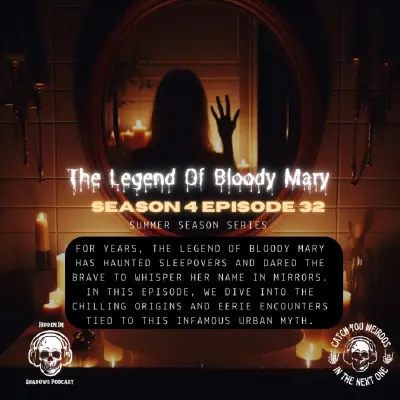
In this spine-chilling episode, we dive deep into the infamous urban legend of Bloody Mary, exploring the dark ritual of summoning a spectral entity by chanting her name in front of a mirror. We unravel the mysterious origins of this supernatural game, examining its cultural roots and psychological underpinnings, including the Troxler effect that might explain some of its seemingly paranormal manifestations.Join us as we share personal encounters with the legend, from bone-chilling stories of sobbing spirits to terrifying visions of headless women. We'll connect Bloody Mary to other paranormal practices like Ouija boards and mirror gazing and even introduce you to the lesser-known rocking chair baby doll ritual that shares its haunting DNA.Are you brave enough to listen? Prepare for a journey into the shadowy world of supernatural summoning. Just don't say her name three times…Topics Of EpisodeHere's a list of places and topics discussed in the episode:Ritual Origins and VariationsHistorical Figures Behind the LegendPsychological Explanations (Troxler Effect)Cultural Mirror FolklorePersonal Encounter StoriesRocking Chair Baby Doll RitualSupernatural Movie ReferencesMirror Gazing and Scrying PracticesPotential Paranormal RisksUrban Legend TransmissionLovin' the intro and outro music?"Swamp Witch”Our other intro Music: "Stacy Dahl" by MaudlinWant to hear more from Maudlin? Check them out on social media!Tik Tok: @maudlinInstagram: @maudlinListen on Spotify and YouTube!Have a paranormal experience to share? Reach out to us! Send us a message on social media, fill out our contact form, or shoot us an email (Hiddenintheshadowspodcast@gmail.com)Get ready for more spooky content coming soon! Follow us for updates.sound effect contributions (copyright-free) "Woman humming mysteriously" – Dark Lit Studio"Striking A Match" – Over and Out"Female Breathing Heavy – No Copyright Sound Effects (Avia)" Hosted on Acast. See acast.com/privacy for more information.
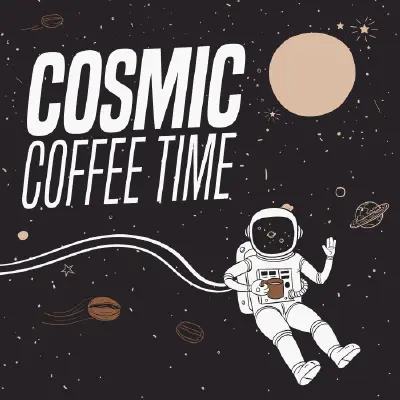
Jun 30, 2025
#80 Plants on the Moon. An Australian team of biologists and engineers are really sending a mini greenhouse to the Moon.
Cosmic Coffee Time with Andrew Prestage ❭
Send us a textAn Australian team of botanists and engineers are working on a project that might make or break the future of long term, long distance space occupation. They're growing plants. Not that unusual, but they're trying to grow them on the Moon. Plants produce oxygen and they are food, essential elements of living away from Earth.Let's check out the plan to experiment with germinating seeds in shoebox sized 'lunariums' on the Moon within the next 12 months.Follow Cosmic Coffee Time on X for some special contentX.com/CosmicCoffTimeEmail us! cosmiccoffeetime@gmail.comYou can request a topic for the show! Or even just say hi!We'd love to hear from you.
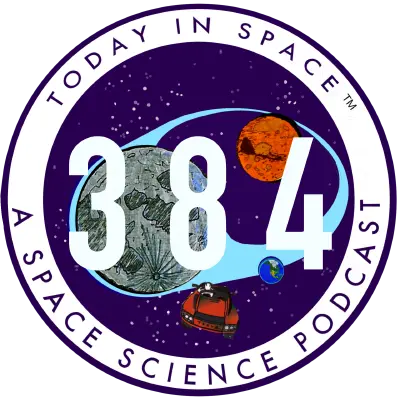
Jun 21, 2025
NASA's Human Landing System, Core Values, and 'The Unconditionals' | Andy Crocker | People of Space
Today In Space ❭
Welcome to Today In Space podcast - and another People of Space segment! This week we get an aerospace engineer's perspective. We learn about what it takes to develop a Human Landing System for NASA, and go head to head with the like's of Jeff Bezos and Elon Musk in the Space Industry. But more importantly, we learn about values and how they can help us overcome burnout, reconnect with what matters, and live with purpose. I'm excited to introduce the author of the book "The Unconditionals" - Andy Crocker. Andy is an aerospace executive with three decades of experience across human and robotic exploration, hypersonics, and missile defense. He’s held senior roles at several companies, leading the development of innovative technologies and managing complex system programs for NASA, commercial, and Department of Defense customers. As a strategic leader, he’s built high-performance teams and contributed to some of the most ambitious projects in aerospace, including NASA’s Human Landing System. For the space fans, you're in luck - we get to nerd out on all-things space! And for the newbies, we hope you enjoy this deep dive into topics like becoming an Astronaut, traveling to the Moon and Mars, and what the future might hold for all of us in space. One thing we know for sure - values will be important for everyone. Join us as we dive into the world of Aerospace Engineering and Space! Learn more about Andy Crocker and his new book "The Unconditionals" here: https://andycrockerbooks.com You can follow Andy here: https://www.linkedin.com/in/andycrocker/ https://www.facebook.com/andycrockerbooks https://www.instagram.com/andycrockerbooks/ Timestamps: 00:00 Introduction 01:00 Andy Crocker's Introduction and Background 02:59 Inspiration for Writing "The Unconditional" 08:49 Challenges and Successes in the Human Landing System Program 30:29 The Importance of Values in Engineering and Life 35:56 The Future of Space Exploration and Personal Aspirations 42:47 Advice for Aspiring Space Engineers 01:01:18 The Impact of Space Programs on Society 01:02:06 Final Thoughts and Future Plans Here's to building a fantastic future - and continued progress in Space (and humanity)! Spread Love, Spread Science Alex G. Orphanos We'd like to thank our sponsors: AG3D Printing (ag3d-printing.com to learn more & start 3D printing today!) Today In Space Merch: James Webb Space Telescope Model (3DPrinted) https://ag3dprinting.etsy.com/listing/1839142903 SpaceX Starship-Inspired Rocket Pen (3DPrinted) https://ag3dprinting.etsy.com/listing/1602850640 Blue Origin New Glenn-inspired Rocket Pen (3DPrinted) https://ag3dprinting.etsy.com/listing/1859644348 Support the podcast: • Buy a 3D printed gift from our shop - ag3dprinting.etsy.com • Get a free quote on your next 3D printing project at ag3d-printing.com • Donate at todayinspace.net #Mars #Moon #NASA #SpaceExploration #HumanLandingSystem #MoonToMars #HumansInSpace #TodayInSpace #SpaceResearch #Aerospace #MoonMission #MarsExploration #values
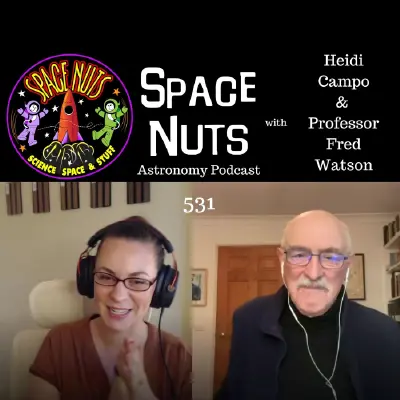
Jun 20, 2025
Astronomical Adventures: Exploring Titan's Ocean, Cassini's Legacy & the Future of Artemis
Space Nuts: Astronomy Insights & Cosmic Discoveries ❭
Sponsor Details:This episode is brought to you by NordVPN...our official VPN Partner. Take control of your online security and enjoy a peaceful digital existence by visiting nordvpn.com/spacenuts and using the code word Space Nuts for a special discount!Exploring Titan and the Evolution of the Artemis ProgramIn this thought-provoking episode of Space Nuts, hosts Heidi Campo and Professor Fred Watson embark on an exciting journey through the mysteries of Saturn's largest moon, Titan, and the latest developments in NASA's Artemis program. From the strange atmospheric phenomena on Titan to the innovative design of the new Artemis control room, this episode is packed with insights that will ignite your cosmic curiosity.Episode Highlights:- Mission to Titan: The episode kicks off with a riveting discussion about Titan's unique characteristics, including its thick atmosphere and the discovery of a subsurface ocean. Fred explains how Titan's atmosphere rotates independently from its surface, leading to fascinating implications for future exploration missions like NASA's Dragonfly.- NASA's Artemis Program: The conversation then shifts to the recent inauguration of the Artemis Science Evaluation Room at the Johnson Space Center in Houston. Fred describes the innovative design of the new control room and the importance of effective team dynamics for the success of future lunar missions.- Whale Communication and Extraterrestrial Life: The hosts delve into a captivating study on humpback whales and their use of bubble rings, exploring the intriguing possibility of communication between species. This discussion leads to broader thoughts on how we might connect with extraterrestrial intelligences in the future.- Listener Questions: As always, the episode features listener questions that spark engaging discussions. From the effects of gravity on celestial bodies to the nature of light and time travel, Fred and Heidi tackle a variety of topics that deepen our understanding of the universe.For more Space Nuts, including our continually updating newsfeed and to listen to all our episodes, visit our website. Follow us on social media at SpaceNutsPod on Facebook, X, YouTube Music Music Music, Tumblr, Instagram, and TikTok. We love engaging with our community, so be sure to drop us a message or comment on your favorite platform.If you’d like to help support Space Nuts and join our growing family of insiders for commercial-free episodes and more, visit spacenutspodcast.com/aboutStay curious, keep looking up, and join us next time for more stellar insights and cosmic wonders. Until then, clear skies and happy stargazing.(00:00) Welcome to Space Nuts with Heidi Campo and Fred Watson(01:20) Discussion on Titan's unique atmospheric phenomena(15:00) Insights into NASA's Artemis Science Evaluation Room(25:30) Exploring whale communication and extraterrestrial life(35:00) Listener Ash questions on gravity, light, and time travelFor commercial-free versions of Space Nuts, join us on Patreon, Supercast, Apple Podcasts, or become a supporter here: https://www.spreaker.com/podcast/space-nuts-astronomy-insights-cosmic-discoveries--2631155/support
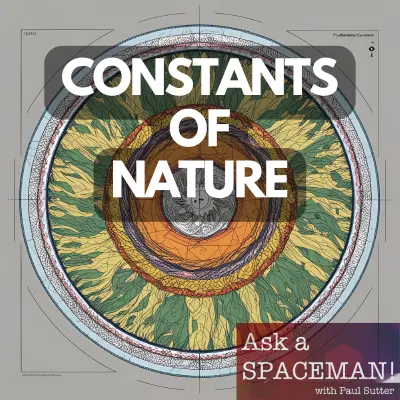
Part 2 of 2! What are the modern constants of nature? Is the universe fine-tuned for life? Does the multiverse or string theory explain the origins of the constants? I discuss these questions and more in today’s Ask a Spaceman! Support the show: http://www.patreon.com/pmsutter All episodes: http://www.AskASpaceman.com Watch on YouTube: http://www.youtube.com/PaulMSutter Read a book: http://www.pmsutter/book Keep those questions about space, science, astronomy, astrophysics, physics, and cosmology coming to #AskASpaceman for COMPLETE KNOWLEDGE OF TIME AND SPACE! Big thanks to my top Patreon supporters this month: Justin G, Chris L, Alberto M, Duncan M, Corey D, Michael P, Naila, Sam R, John S, Joshua, Scott M, Rob H, Scott M, Louis M, John W, Alexis, Gilbert M, Rob W, Jessica M, Jim L, David S, Scott R, Heather, Mike S, Pete H, Steve S, wahtwahtbird, Lisa R, Couzy, Kevin B, Michael B, Aileen G, Don T, Steven W, Brian O, Deborah A, Michael J, Mark R, Alan B, Craig B, Mark F, Richard K, Stace J, Stephen J, Joe R, David P, Justin, Robert B, Sean M, Tracy F, Sarah K, Ella F, Thomas K, James C, Syamkumar M, Homer V, Mark D, Bruce A, Tim Z, Linda C, The Tired Jedi, Gary K, David W, dhr18, Lode D, Bob C, Red B, Stephen A, James R, Robert O, Lynn D, Allen E, Michael S, Reinaldo A, Sheryl, David W, Sue T, Chris, Michael S, Erlend A, James D, Larry D, Karl W, Den K, George B, Tom B, Edward K, Catherine B, John M, Craig M, Scott K, Vivek D, and Barbara C! Hosted by Paul M. Sutter.
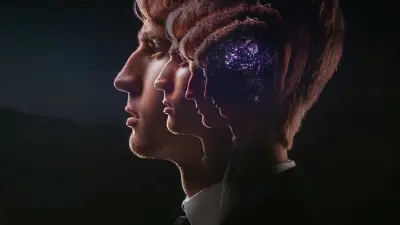
Is the soul a myth? Does your mind really just boil down to brain function? On today's ID The Future, host Andrew McDiarmid speaks with journalist Denyse O'Leary about surprising findings out of neuroscience that shatter materialist assumptions. O'Leary is co-author with Dr. Michael Egnor of The Immortal Mind: A Neurosurgeon's Case for the Existence of the Soul. In this conversation, O'Leary reports on recent findings about the origin of consciousness, the challenge that near-death experiences present to materialism, and why the only way to move past materialism is to reject it fully as a model.
Source
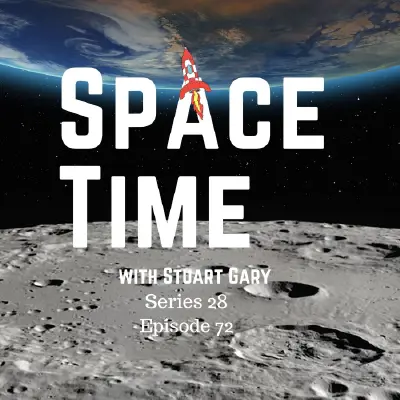
Jun 16, 2025
Hidden Depths of the Moon: What Glass Beads Reveal About Its Mantle
SpaceTime: Your Guide to Space & Astronomy ❭
Sponsor Details:This episode is brought to you by NordVPN - the official VPN service of SpaceTime. Protect your online privacy with the same service we trust. For a special SpaceTime deal, visit nordvpn.com/stuartgary or use the coupon code Stuart Gary at checkout.In this episode of SpaceTime, we uncover fascinating new insights into the Moon's hidden mantle, the dynamics of stellar nurseries, and the latest lunar lander mishap.A New Window into the Moon's Hidden MantleRecent studies of unique green glass beads retrieved by China's Chang' E5 mission suggest evidence of a significant asteroid impact on the Moon. These beads, with their unusually high magnesium content, may originate from the Moon's mantle, offering scientists their first direct glimpse into this elusive layer. We discuss the implications of this discovery for understanding lunar geology and the history of our celestial neighbor.Unusual Stellar Nursery Discovered Near the Milky Way's CenterNew findings indicate that star formation rates near the galactic center of the Milky Way are unexpectedly low, despite the high density of stellar material. Utilizing data from NASA's retired SOFIA observatory, researchers have identified that these regions may produce only one generation of stars, challenging traditional models of stellar nurseries. We explore what these revelations mean for our understanding of galactic dynamics and star formation processes.Another Lunar Lander Crashes on the MoonThe Japanese I Space lunar lander, Resilience, has tragically crashed during its landing attempt on the Moon, marking another setback in the race for lunar exploration. We delve into the details surrounding the mission's failure and the ongoing investigations aimed at uncovering the cause of the crash. This incident highlights the challenges faced by commercial space missions as they strive to achieve successful lunar landings.www.spacetimewithstuartgary.com✍️ Episode ReferencesScience Advanceshttps://www.science.org/journal/sciadvAstrophysical Journalhttps://iopscience.iop.org/journal/0004-637XBecome a supporter of this podcast: https://www.spreaker.com/podcast/spacetime-space-astronomy--2458531/support.00:00 This is Space Time Series 28, Episode 72 for broadcast on 16 June 202501:00 A new window into the Moon's hidden mantle12:15 Unusual stellar nursery discovered near the Milky Way's center22:30 Another lunar lander crashes on the Moon30:00 Science report: New insights into the mystery of why cats purr
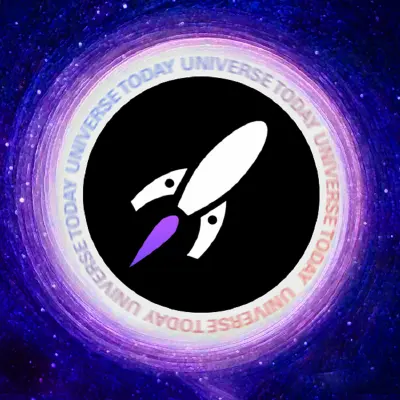
Jun 13, 2025
[Space Bites] Sun’s Pole Revealed // Sun Shade vs Climate Change // Source of Cosmic Rays
Universe Today Podcast ❭
Have we finally found the source of ultra-high energy cosmic rays? Our first look at the Sun’s south pole, New Glenn slips again, what kind of damage would rockets do to the ozone layer? And in Space Bites+, a pair of quasars that dominated Cosmic Noon.
🚀 [Space Bites+] No ADS. BONUS Story. For FREE:
https://www.patreon.com/universetoday
🌌 Zone of Avoidance interview:
https://youtu.be/BpaEskYuBk0
👉 Vote for the best story here:
https://www.youtube.com/@frasercain/community
00:00 Intro
00:23 Source of cosmic rays
https://phys.org/news/2025-06-cosmic-rays-astrophysicists-closer.html
03:25 First ever view of the Sun's pole
https://www.universetoday.com/articles/the-solar-orbiter-is-giving-us-a-decisive-look-at-the-suns-poles
05:10 Detailed view of the Sun
https://www.universetoday.com/articles/the-suns-identity-crisis-solved
06:30 New Glenn launch slips again
https://arstechnica.com/space/2025/06/second-new-glenn-launch-slips-toward-fall-as-program-leadership-departs/
08:12 Vote results
08:59 Rockets and the ozone layer
https://www.nature.com/articles/s41612-025-01098-6
11:10 Sunshade to combat climate change
https://www.universetoday.com/articles/would-a-planetary-sunshade-help-cool-the-planet-this-mission-could-find-out
13:01 Star formation in the center of the Milky Way
https://www.universetoday.com/articles/the-galactic-center-struggles-to-form-massive-stars
14:46 Colliding Galaxies
https://www.universetoday.com/articles/colliding-galaxies-tearing-at-each-other-with-gravity-and-radiation
15:45 A planet forming
https://www.universetoday.com/articles/youre-looking-at-a-newly-forming-planet
17:12 More space news
18:09 Bonus story
18:26 NASA's SMM
📺 VIDEO VERSION
https://youtu.be/_8EZb6NOauo
📰 GUIDE TO SPACE Newsletter
No ads. Subscribe for FREE: https://universetoday.com/newsletter
🎧 PODCASTS
Universe Today: https://universetoday.fireside.fm/
Astronomy Cast: http://www.astronomycast.com/
📩 CONTACT FRASER
frasercain@gmail.com
⚖️ LICENSE
Creative Commons Attribution 4.0 International (CC BY 4.0)
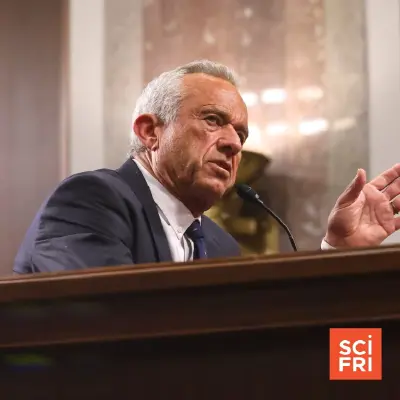
On Monday, US Health Secretary Robert F. Kennedy Jr. fired all 17 members of the panel that advises the CDC on who should get certain vaccines and when. Then on Thursday, he appointed eight new members, some of whom have been critical of vaccines in the past. So who exactly is new on the panel and how are medical experts reacting?Sophie Bushwick from New Scientist breaks down this reshuffling and the other top science stories of the week, including Starlink’s leaky satellites, Earth’s possible past encounters with dark matter, IBM’s quantum computing plans, a device that can extract water from dry air, and how a paralyzed man was able to speak thanks to brain-controlled synthetic voice.Plus, nearly one in four Americans live within three miles of a Superfund site, places that are contaminated with hazardous waste and flagged for cleanup by the government. Amid sweeping cuts to science and environmental programs, the Trump administration appears to be prioritizing the cleanup of these polluted sites. But why? Host Flora Lichtman talks with science journalist Shahla Farzan about the Trump administration’s approach to cleaning up Superfund sites and what this means for impacted communities.Read Farzan’s full story about the move to expedite cleanup, and her past coverage of how floods can impact the areas surrounding Superfund sites.Transcripts for each episode are available within 1-3 days at sciencefriday.com.
Subscribe to this podcast. Plus, to stay updated on all things science, sign up for Science Friday's newsletters.

Good morning my baddies, and welcome back to another brand new episode of Tarot Talk With Steph. In today's episode we talk about digging deep and figuring out what fears are holding us back from our dream we talk about dancing with life and just finding the joy, put on some music and just dance and laugh like no one is watching.Well I hope you all have a wonderful Thursday.Thank you for listening,Stephanie.
